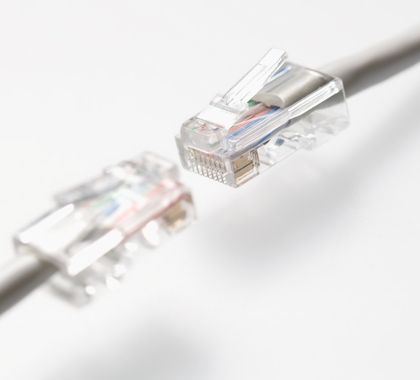A months-long court battle challenging the Federal Communications Commission’s (FCC) authority to rewrite U.S. law has been brought to an end by federal judges. Unfortunately for consumers, the government courts sided with government lawyers.
On June 14, federal judges in the U.S. Court of Appeals for the District of Columbia Circuit ruled in favor of FCC, determining—in agreement with government lawyers—the regulatory agency possesses the legal authority to rewrite federal law using the Telecommunications Act of 1934 to regulate internet services in the same manner a power company is regulated.
These regulations, using laws from the 1930s to address issues in 2016, put unelected government regulators between consumers and service providers, in stark contrast to FCC’s stated goal of “supporting the nation’s economy by ensuring an appropriate competitive framework for the unfolding of the communications revolution.”
Treating the internet as though it is an electric company or a water company allows FCC to insert itself in the middle of every data transaction, between every recipient and sender of every bit and byte. It’s one of the most significant regulatory power grabs in history, and few people even realize it occurred.
The term net neutrality is itself a Trojan horse for control-hungry bureaucrats, and justifying the decision under Title II of the Telecommunications Act shows FCC is less interested in “ensuring an appropriate competitive framework” and more interested in banning prioritization on private networks.
Prioritization is a technical term referring to agreements made between content providers and a network owner that allows the provider’s data to travel on less-congested network routes in exchange for agreed-upon fees.
When networks are clogged with data during high-traffic times, these private agreements help consumers receive requested data faster, which benefits consumers.
All kinds of data—YouTube videos of epic fails, an e-mail to your boss, or that winning move in Overwatch—travel over the internet, but some kinds of data are more tolerant of delays or temporary congestion. For example, the order in which an e-mail’s data are sent doesn’t matter very much, but other kinds of data—such as data for streaming videos or playing video games—are less forgiving when jumbled around.
Receiving data bits in the wrong order or at the wrong time can cause distortions, stutters, lag, and other problems. Ideally, content companies can choose to pay a little bit extra—if it’s worth it to them—to have their content bits be delivered faster than data from competing services.
Similar to how many motor-vehicle drivers choose to pay slightly more to take well-maintained toll roads instead of clogged government-funded highways, paid prioritization allows you to be entertained in higher fidelity. By preventing paid prioritization, net neutrality forces internet service providers to treat all data alike, ignoring the different needs of the various kinds of data travelling over the internet.
Net neutrality permanently sticks commands to your favorite Overwatch hero in the same slow internet road as your least-favorite e-mail spam, preventing the data you want from getting to you when you want and need it.
Instead of pursuing more power through opaque regulations and months of court battles, ditching net neutralityand cutting deadweight regulations on internet providers and other telecommunications companies is the key to giving consumers a power-up in today’s fast-paced digital economy.


